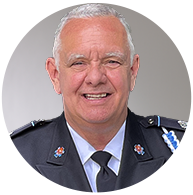Medical malpractice can be devastating. Not only are you and your family dealing with physical and emotional pain associated with medical negligence, but you also might be wondering what your options may be for reconciliation if a nurse was at fault. The accomplished attorneys at Janet, Janet & Suggs know how to handle medical malpractice cases. Learn about the basics and the necessary steps we take in seeking the compensation you deserve following injurious medical negligence.
Can I Hold the Nurse Responsible?
Determining responsibility is a crucial factor in establishing a medical malpractice suit. If your medical practitioner did indeed behave negligently, there’s usually a specific action or inaction to blame for your injuries or the injuries of your family member. Once you identify the negligent party, you can decide who to pursue legally. Any healthcare worker can commit medical malpractice and be held liable. In the case of nursing negligence, one or more of the following parties will typically be held responsible:
- The nurse themselves: In some cases, victims choose to sue the nurse responsible. However, some nurses don’t have medical malpractice insurance or don’t have substantial insurance to cover the compensation you deserve.
- The attending doctor: If the nurse was operating under the direction of an attending physician, they might be held responsible for the nurse’s negligence.
- The hospital or doctor’s office: The most common course of action is to sue the nurse’s employer, often either a hospital or a doctor’s office, since they’re responsible for ensuring the competency of their employees. They also typically have much higher insurance thresholds, increasing the amount of compensation you could receive if they are found responsible.
Examples of Nursing Malpractice
Nurses have a number of important job responsibilities. Primarily, they assist in daily patient care, including activities like monitoring vital signs, providing meals, administering medications, changing dressings, and assessing medical equipment. Common instances of nursing malpractice include:
- Failure to respond to emergency situations
- Failure to obtain the assistance of a doctor when necessary
- Inaccurately assessing vital signs
- Administering the incorrect medication or dosage
- Failing to monitor and adjust medical equipment properly
Nurses are licensed medical professionals who often practice independently in the absence of a doctor’s direct orders. In the case of medical malpractice, it’s essential that you identify the exact instance of malpractice and determine whether it was the doctor or nurse who made the decision that led to the negligence.
Basic Requirements
If you wish to bring a medical malpractice suit against a negligent nurse, your case must meet a few basic requirements to prove the negligence occurred:
- Nurse/patient relationship: The first step is proving you had a professional relationship with the nurse, meaning, you were seen by the nurse in a professional capacity for a specific reason.
- Nurse’s negligence: Next, you must prove that due to the nurse’s actions, you received an unfavorable outcome that may not have occurred under the care of a different nurse. Often, you’ll need a medical expert to assist in determining whether the nurse’s treatment was sufficient.
- The injury led to damages: Finally, you must prove that the negligence by the nurse directly led to the damages you’re claiming. Common damages include mental anguish, physical pain, medical expenses, and loss of work or earning ability.
Special Requirements
Medical malpractice cases have a few special requirements that may not apply to other types of lawsuits. If you’re seeking compensation for negligent medical care, consider these additional requirements:
- Cases are time-sensitive: Medical malpractice cases fall under a relatively short statute of limitations. These differ from state to state but, usually, you must bring your suit within six months to two years from the occurrence of medical malpractice.
- May require a medical review panel: Many states require a preliminary medical review panel before you can bring your case to court. Often, the findings from the review panel are the primary evidence presented during your actual court case.
- Notice requirements: In some states, you must present the nurse, attending doctor, or hospital with a formal notice describing the malpractice before you can file your claim in court.
- Possible expert testimony: In almost every case, the testimony of an expert medical witness is required to prove negligence. Generally, this person appears both at the medical review panel and at your actual court case.
- Damage award limits: Some states place a cap on the maximum amount of money a judge can award to a victim of medical malpractice.
Types of Malpractice for Nurses
The specifics of each medical malpractice case can vary dramatically. For nurses, almost all instances of medical neglect are some form of improper treatment, whether it involves not providing the appropriate treatment when necessary or giving the patient the incorrect medication or support equipment.
Who Can Help?
Medical malpractice cases are highly complicated and typically require the insight of medical experts for success. If you think you have been the victim of medical negligence at the hand of a nurse, get in touch with a licensed attorney who can help you navigate the legal process. The Medical Malpractice Division at JJS includes an in-house physician and registered nurses, and is ready to assist you in your quest for validation and compensation following your medical malpractice injuries and damages. Contact us today for a free consultation to see how we can help you.

Reviewed by:
William R. “Topper” Cramer, RN, MBA, MS, CCRN, CFRN, EMT-P
Legal Nurse Consultant | Nurse Paralegal
Topper has been involved in emergency, transport, and critical care medicine since 1978 when he became an EMT in high school. A United States Air Force veteran, he remains active as a pre-hospital RN/paramedic, certified flight nurse, and critical care nurse. In addition to his professional role as a nurse consultant/nurse paralegal, he is the Chief of Operations at Walkersville Volunteer Rescue in Frederick County, Maryland. READ FULL BIO
